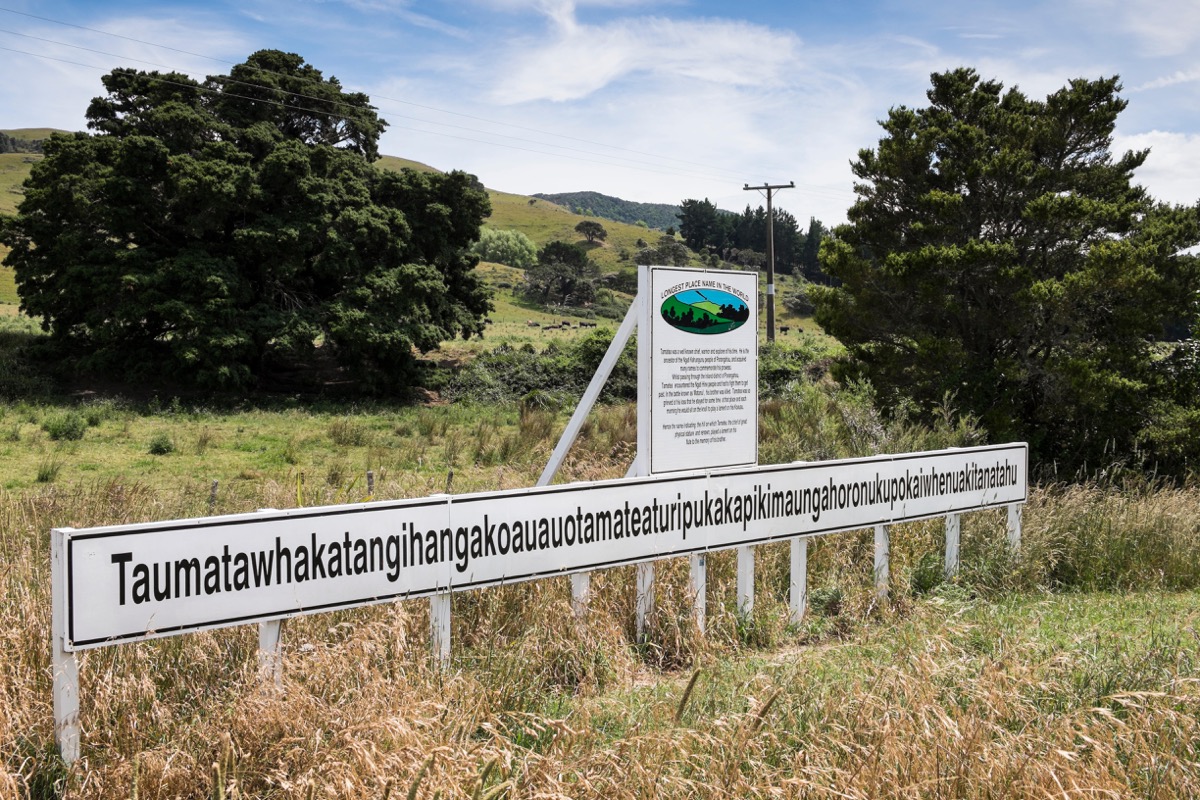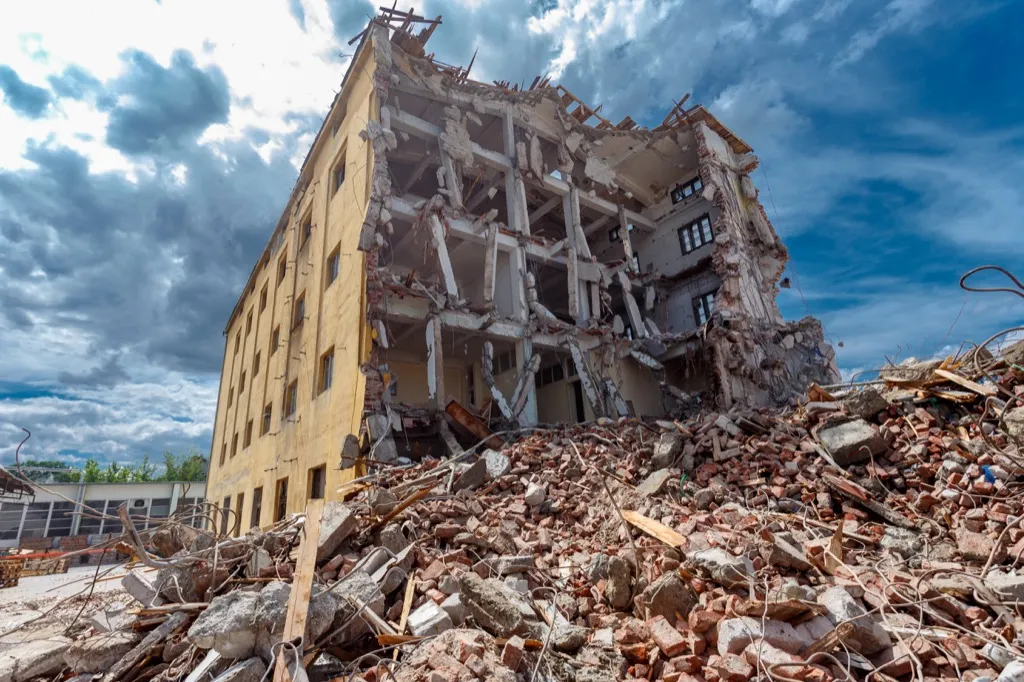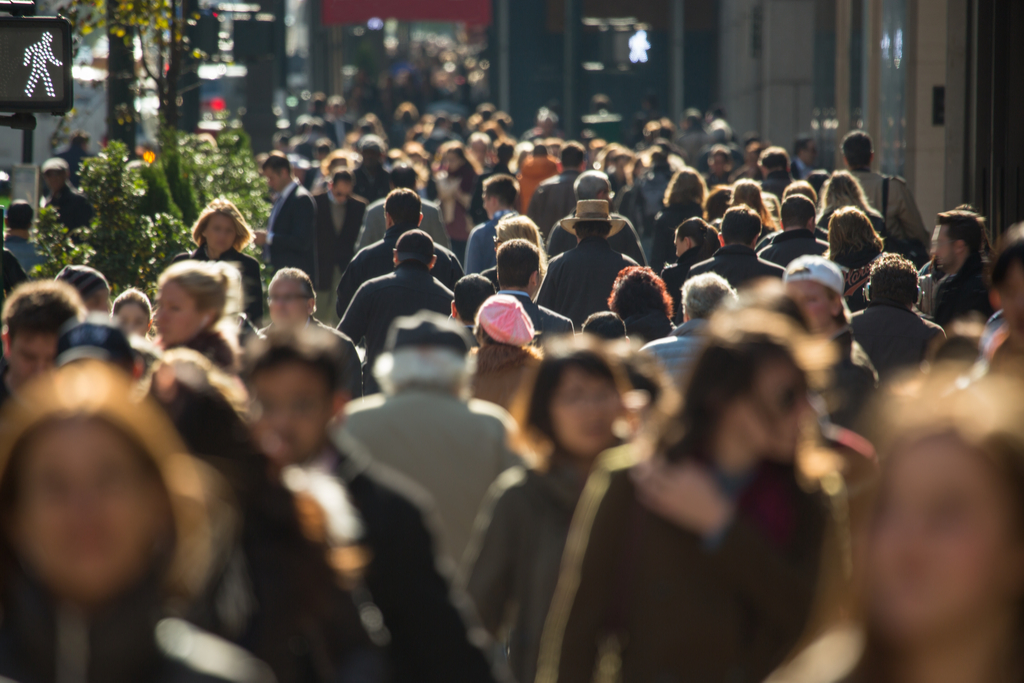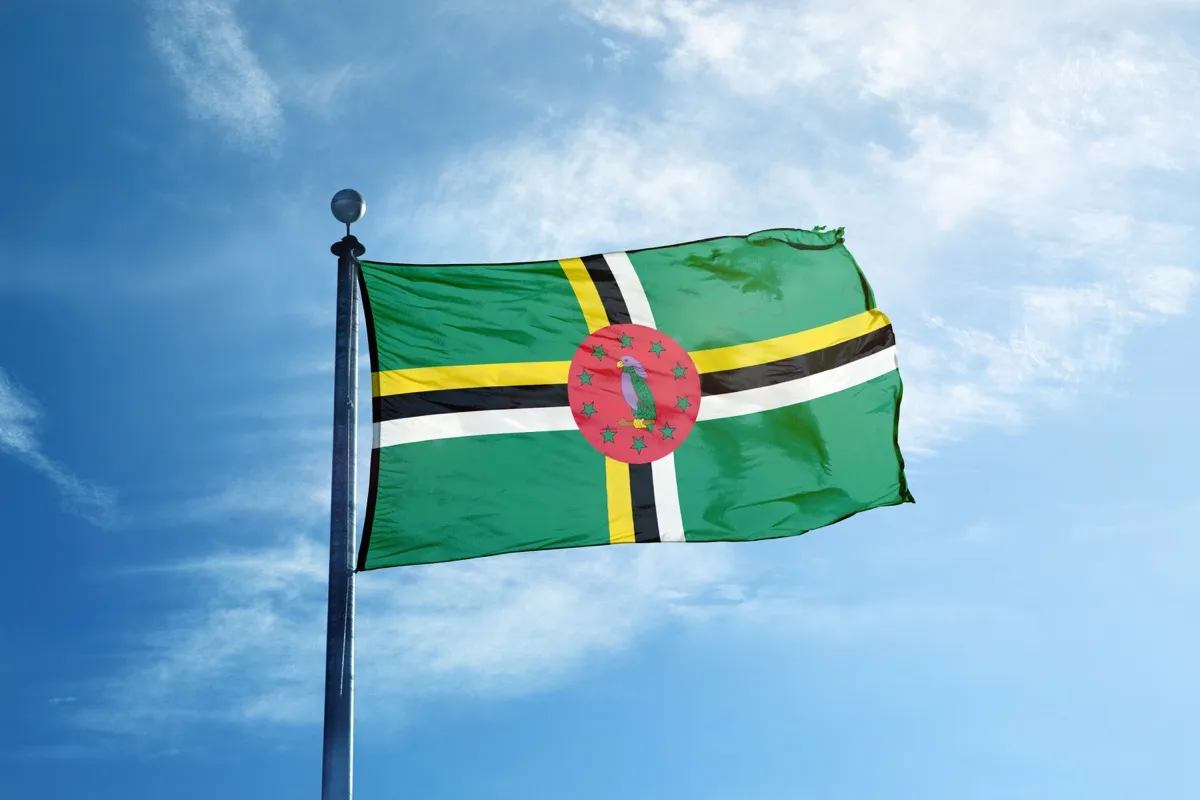1There's only one country in the world that doesn't use the metric system.

For simplicity's sake, most of the more than 200 countries in the world use the metric system when describing things like length or mass. However, there were recently three countries that stood out: Liberia, Myanmar, and the United States.
In 2018, Liberia commerce and industry minister Wilson Tarpeh said the government planned to adopt the metric system in order to promote accountability and transparency in trade, according to the Liberian Observer. Myanmar made a similar commitment, which leaves the U.S. as the lone holdout.
2The longest place name on the planet is 85 letters long.

People who live in Mamungkukumpurangkuntjunya Hill, Australia, need a little patience when it comes to learning to spell their hometown's name. But you know what? So do the folks from Lake Chargoggagoggman-chauggagoggchaubunagungamaugg in Massachusetts and Tweebuffelsmeteen-skootmorsdoodgeskietfontein, South Africa.
None of them have quite as much work to do when jotting down their address as those who live in Taumatawhakatangihanga-koauauotamateaturipukakapikimaung-ahoronukupokaiwhenuakitanatahu, New Zealand, though. At 85 letters long, this is the longest place name in the world.
3Four babies are born every second.

Every second, we welcome four new babies into our overall population. Do a little math and you'll find out that means there are approximately 250 births each minute, 15,000 each hour, and 360,000 each day.
4The coldest temperature ever recorded was -144 degrees Fahrenheit.

You might think you're accustomed to frigid air and blustery winds, but the average winter day has nothing on the coldest day ever recorded, which was -144 degrees Fahrenheit. The temperature was recorded in Antarctica during a span of research between 2004 and 2016. Just a few breaths of air at that temperature would induce hemorrhaging in your lungs and kill you.
5The Earth's ozone layer will make a full recovery in 50 years.

Because of pollution, the Earth's ozone layer has suffered a lot. That's bad news for everyone, since the fragile gas layer protects our planet and shields us from the sun's harmful ultraviolet rays. Fortunately, climate change experts believe that the ozone layer will fully heal within 50 years, according to a 2018 report from the United Nations.
The recovery is thanks in large part to the Montreal Protocol of 1987, which put a global ban on the use of one of the main culprits for the damage: chlorofluorocarbons (CFOs). Previously, CFOs had been common in refrigerators, aerosol cans, and dry-cleaning chemicals.
6Japan is the world's most earthquake-prone country.

Earthquakes can range from minor tremors that are barely noticeable to building-toppling ground-shakers that cause massive destruction. But it's an inevitable part of life for those who live in countries such as China, Indonesia, Iran, and Turkey, which are some of the most earthquake-prone places on the planet. However, according to the USGS, Japan records the most earthquakes in the world.
7There are around 4 quadrillion quadrillion bacteria on Earth.

Not all bacteria are bad. In fact, some of those itty-bitty biological cells are actually good for us and aide the world in various and complex ways. And that's nice to know, considering there are around 4 quadrillion quadrillion individual bacteria on our planet, according to NPR.
8People who are currently alive represent about 7% of the total number of people who have ever lived.

Here's another world fact to keep in the back of your mind: According to the Population Reference Bureau, since the time Homo sapiens first hit the scene 50,000 years ago, more than 108 billion members of our species have been born. And a large chunk of that number is alive right now. According to the bureau, the number of people alive today represents a whopping 7% of the total number of humans who have ever lived.
9Muhammad is thought to be the most popular name in the world.

Step aside John, James, Mary, and Jane—the most popular name in the world is believed to be Muhammad. According to The Independent, an estimated 150 million men and boys around the world share this name. The popularity is thanks to a Muslim tradition of naming every first-born son after the Islamic prophet.
10Only two countries use purple in their national flags.

The flag of Nicaragua features a rainbow in the center that includes a band of purple, while the flag of Dominica boasts a picture of a sisserou parrot, a bird with purple feathers. These elements make them the only two flags in the world that use the color purple.


No comments:
Post a Comment